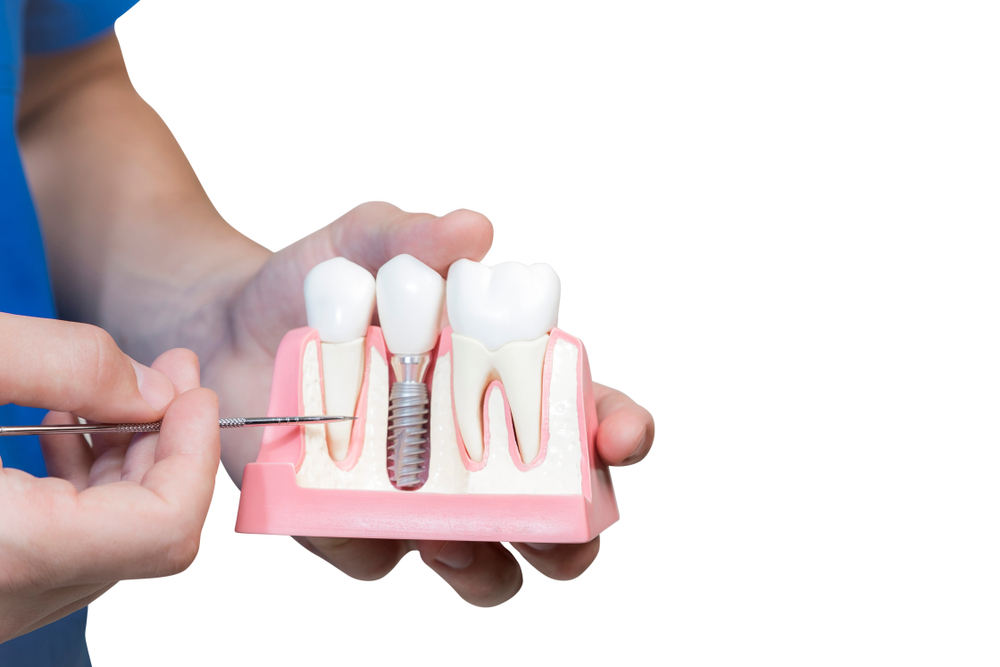
Dental implants have revolutionized dental care, providing a reliable solution for missing teeth. Similar to other surgical procedures, complications can sometimes occur with dental implants, and one potential complication is the development of an infection around the implant site.
Although infections don’t frequently happen, they demand immediate attention to sidestep additional issues and secure the successful integration of the implant.
Recognizing the Signs
Early detection of an infection around a dental implant is crucial. Common signs include:
- Pain and Discomfort: Persistent or increasing pain around the implant area.
- Swelling: Inflammation or swelling of the gums near the implant.
- Redness: The surrounding tissue might appear red and inflamed.
- Pus or Discharge: Formation of pus or discharge around the implant.
- Looseness: Instability or mobility of the implant.
Immediate Actions
If you suspect an infection around the dental implants near you, here are steps you can take before seeking professional help:
- Maintain Oral Hygiene: Continue with regular oral care routines, including gentle brushing and flossing, to keep the area clean.
- Saltwater Rinse: Mix a teaspoon of salt into a glass of warm water to make a saltwater solution. Get a little sip, swirl it around your mouth for about 30 seconds near the affected area, and then spit it out. It can help to reduce bacteria and relieve discomfort.
Seeking Professional Help
If you observe any signs indicating an infection, it’s crucial to contact your dentist or oral surgeon promptly. They will conduct a comprehensive examination to evaluate the infection’s severity. Based on their assessment, potential treatments might involve:
- Antibiotics: If the infection is mild, your dentist near you may prescribe antibiotics to eradicate the bacteria causing the infection.
- Cleaning the Area: Professional cleaning and removing accumulated plaque or debris around the implant might be necessary.
- Surgical Intervention: In severe cases where the infection has led to bone loss or jeopardized the implant’s stability, surgical intervention might be needed to clean the area thoroughly or temporarily remove the implant.
Post-Treatment Care
After receiving treatment for the infection, follow these guidelines to aid in the healing process:
- Medication Adherence: Take prescribed antibiotics or medications as your dentist directs until completion, even if symptoms improve.
- Oral Hygiene: Maintain strict oral hygiene. Brush gently twice a day and use an antimicrobial mouthwash as recommended.
- Avoid Irritants: Refrain from smoking and consuming alcohol during the healing process, as they can hinder the body’s ability to heal.
- Soft Diet: Initially, opt for soft foods that don’t exert pressure on the implant area to aid in recovery.
- Follow-up Appointments: Attend all follow-up appointments scheduled by your dentist to monitor the healing progress.
Additional Notes
Infections around dental implants require immediate attention and proper care to prevent complications. Timely recognition, immediate care, and consistent aftercare play pivotal roles in recovering well.
Adhering to these principles and upholding proper oral hygiene significantly reduces the chances of infections and ensures enduring advantages from your dental implants in the long haul.
We Put Your Oral Health First
At Blossom Family Dental, tackling infections around dental implants begins with an attentive examination and passionate care. Our experienced dentists swiftly identify signs and conduct thorough assessments to determine the infection’s extent.
Tailoring treatments to each patient, we employ precise cleaning procedures and, if needed, prescribe targeted antibiotics. We prioritize patient education, ensuring a clear understanding of post-treatment care.
Our emphasis on stringent oral hygiene practices aids in minimizing future risks. With a commitment to comprehensive care and ongoing support, the team at Blossom strives for optimal healing and long-term success in every dental implant case.
